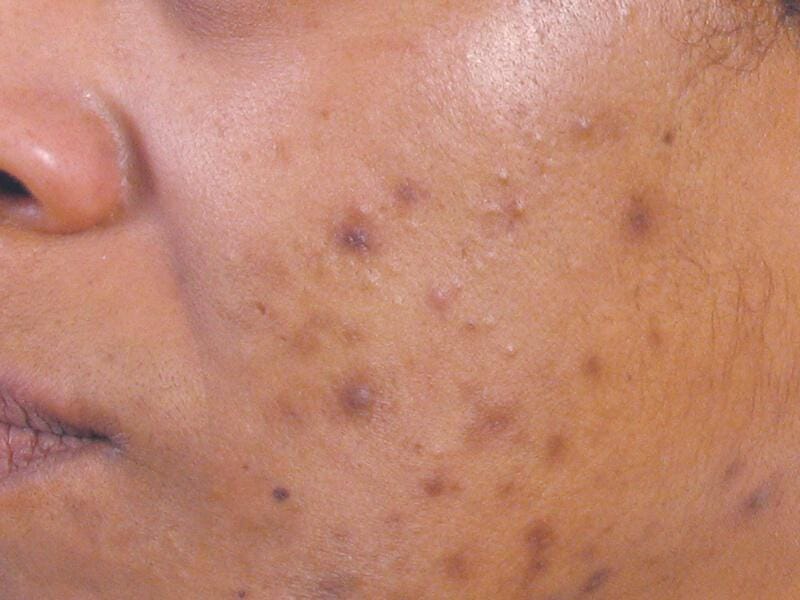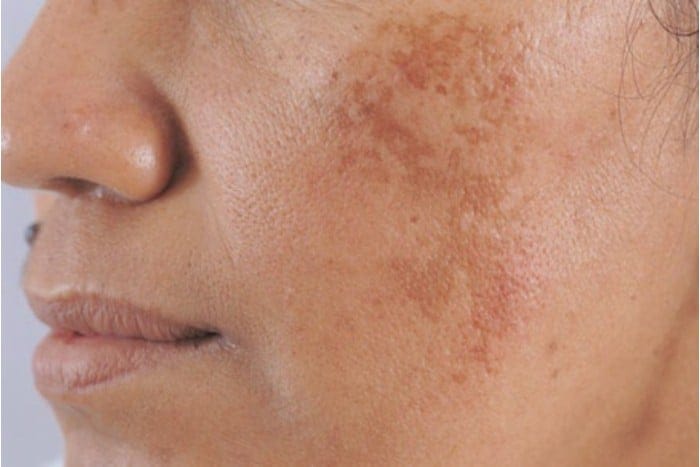Post-inflammatory hyperpigmentation (PIH) is a common skin condition that often follows acne, inflammation, or trauma. Many individuals struggle with dark spots and wonder: Does post-inflammatory hyperpigmentation go away? Let HBIO Clinic guide you through understanding and treating it properly.
What Is Post-inflammatory Hyperpigmentation?
Post-inflammatory hyperpigmentation (PIH) refers to darkened patches of skin that appear after the skin undergoes inflammation or injury—such as acne breakouts, scratches, allergic reactions, or cosmetic procedures like microneedling or laser therapy. As a protective response, the body produces excess melanin—the pigment responsible for skin color—leading to darker areas on the affected skin.
This process is more common in individuals with sensitive or darker skin tones, where the melanin production is more intense, resulting in uneven pigmentation after healing.

Click here: Meso Injection for Acne Treatment: Results & Cost at HBIO
Common Causes of Post-inflammatory Skin Pigmentation
Several factors can trigger post-inflammatory hyperpigmentation, including:
Inflammatory Acne
When severe acne (like cystic or pustular acne) heals, it often leaves behind dark marks due to deep inflammation and melanin overproduction.
Improper Pimple Popping
Squeezing pimples at home without proper hygiene or technique can damage the skin and trigger pigmentation, scarring, or infection.
Skin Allergies or Dermatitis
Scratching or rubbing irritated skin caused by allergies, insect bites, or reactions to cosmetics can worsen inflammation and leave post-inflammatory marks.
Incorrect Skin Treatments
Procedures like chemical peels, lasers, or microneedling performed at non-certified clinics or without proper aftercare may result in deep skin damage, increasing the risk of pigmentation

Who Is More Likely to Develop Post-inflammatory Hyperpigmentation?
Though PIH can affect anyone, these groups are at higher risk:
-
People with oily or acne-prone skin: Persistent breakouts lead to frequent inflammation and dark marks post-acne.
-
Individuals with darker skin tones (Fitzpatrick skin types III–VI): Melanin activity is more reactive, causing deeper discoloration.
-
People with sensitive or allergy-prone skin: Frequent inflammation can weaken skin resilience and promote discoloration.
-
Those who frequently pick at acne or self-medicate: Skin trauma from harsh methods aggravates pigmentation.
-
People who skip sunscreen: UV rays stimulate melanocytes, deepening dark spots and prolonging recovery.

Click here: Safe Forehead Filler Injections – Smooth, Naturally Full Forehead
Treatment for Post-inflammatory Hyperpigmentation
To fade post-inflammatory skin pigmentation effectively, a comprehensive treatment approach is essential:
Sun Protection Is a Must
No matter what product or method you use, skipping sunscreen can undermine all efforts. UV exposure worsens pigmentation by activating melanocytes.
At HBIO Clinic, dermatologists emphasize the use of medical-grade sunscreens suitable for damaged skin, along with physical protection—such as hats and certified face masks.
Topical Ingredients That Brighten Skin
Science-backed actives that help lighten PIH include:
-
Niacinamide (Vitamin B3)
-
Tranexamic Acid
-
Stable forms of Pure Vitamin C
-
Modern Retinoids
-
Safe concentrations of AHA/BHA combinations
Advanced Clinical Solutions
For persistent or long-standing pigmentation, HBIO Clinic offers:
-
Laser Toning: Targets melanin with gentle light energy.
-
Chemical Peels: Removes dead skin using professional-grade acids.
-
Microneedling: Stimulates regeneration via micro-injuries.
-
Mesotherapy: Infuses active brightening ingredients directly into the skin.

Yes—post-inflammatory hyperpigmentation can fade over time, especially with proper care. However, the timeline depends on skin type, pigmentation depth, and treatment method. With consistent use of the right products and clinical support, visible improvement is achievable.
At HBIO Clinic, we’re committed to guiding you on your skin recovery journey with customized regimens and state-of-the-art technology. Don’t let hyperpigmentation hold you back—let your skin glow with confidence again.


 Tiếng Việt
Tiếng Việt
Dr. Thai Nguyen – Founder and Medical Director of HBIO Clinic. As an expert in aesthetic dermatology, she regularly shares in-depth knowledge and practical experience to provide valuable and insightful information for those seeking better skin health.